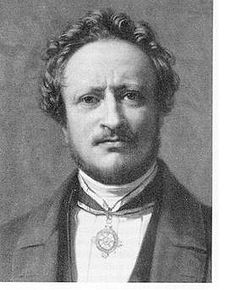A new study from Ann & Robert H. Lurie Children’s Hospital of Chicago found that children with a MED-EL Synchrony cochlear implant device can undergo MRI safely, with no discomfort and reduced need for sedation or anesthesia.
Findings were recently published in the peer-reviewed journal Laryngoscope.
Cochlear Implants and MRI Safety
Cochlear implants contain a small magnet that is used to attach an external sound processor behind the ear. In most implant designs, the magnet had to be surgically removed before an MRI could be performed, and surgically replaced after the scan, because an MRI scanner also contains a powerful magnet. A later strategy to avoid magnet removal used a special head wrap to counteract the force on the cochlear implant magnet from the MRI. However, patients would still report feeling uncomfortable pressure or pain during the MRI, which often produced anxiety.
The latest cochlear implant from MED-EL incorporates a innovative new design change that allows the special internal magnet to rotate with the magnetic force from the MRI, making surgical removal of the magnet or a head wrap unnecessary. The greater safety and comfort level increases MRI access for children with MED-EL Synchrony cochlear implant devices.
“MRI is an increasingly important diagnostic tool, and access to MRI evaluation without pain and other complications is critical for children with cochlear implants,” said lead author Nancy Young, MD, Medical Director of Audiology & Cochlear Implant Programs at Lurie Children’s and Professor of Pediatric Otolaryngology at Northwestern University Feinberg School of Medicine.
“Few children in our study required sedation or anesthesia during MRI, and none because they had an implant. In the past, all of our patients with cochlear implants required sedation during scanning, to avoid additional surgery to remove the magnet. This is a huge improvement, especially for children with conditions requiring repeated imaging.”
The study included seven patients (ages 1.3 to 19 years) with MED-EL Synchrony cochlear implant devices, who underwent 17 episodes of 1.5 or 3.0 Tesla MRI. Seventy-six percent of MRI sessions were completed in awake patients. No patients had device-related discomfort and no magnet related complications occurred. Ninety-three percent of brain studies (13 of 14) and all body studies provided clinically useful diagnostic imaging.
To date, Lurie Children’s has implanted 208 children with the MED-EL Synchrony cochlear device since it became available in 2015. More than 2000 cochlear implant surgeries have been done at Lurie Children’s since the program began in 1991.
About Ann & Robert H. Lurie Children’s Hospital of Chicago
Research at Ann & Robert H. Lurie Children’s Hospital of Chicago is conducted through the Stanley Manne Children’s Research Institute. The Manne Research Institute is focused on improving child health, transforming pediatric medicine and ensuring healthier futures through the relentless pursuit of knowledge. Lurie Children’s is ranked as one of the nation’s top children’s hospitals by U.S. News & World Report. It is the pediatric training ground for Northwestern University Feinberg School of Medicine. Last year, the hospital served more than 220,000 children from 48 states and 49 countries.
*For more information about the MED-EL Synchrony cochlear implant, visit www.medel.com.






